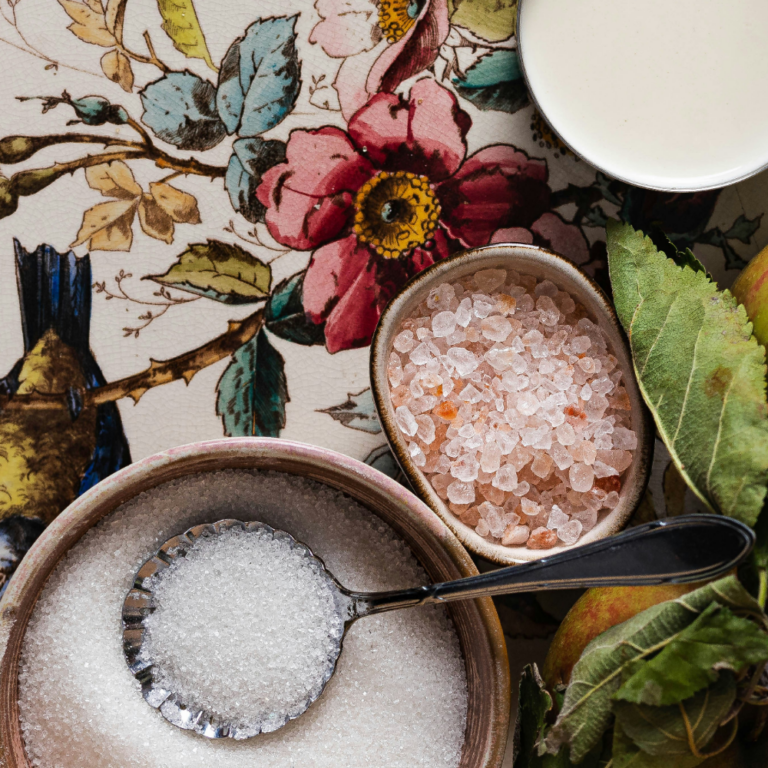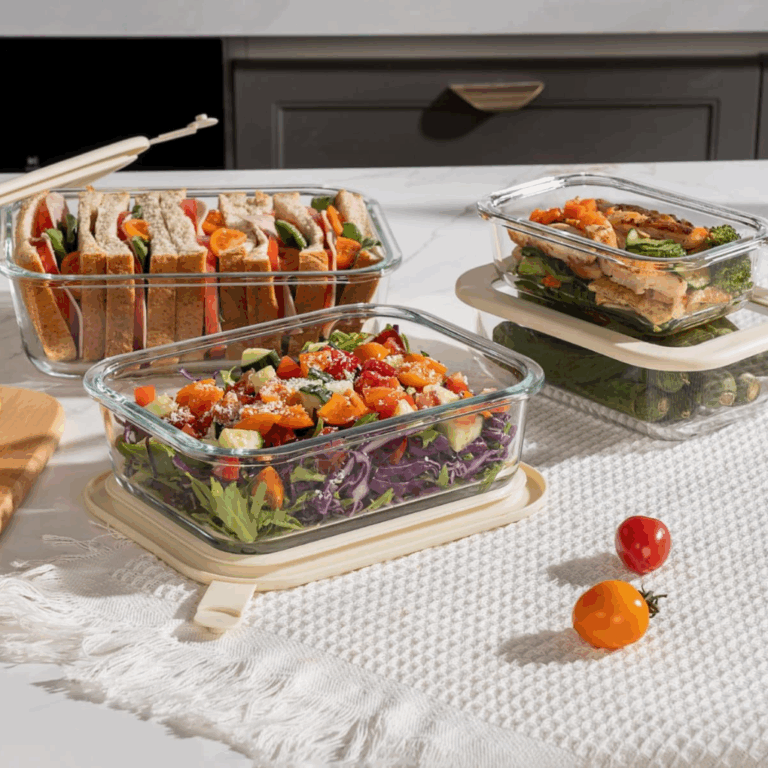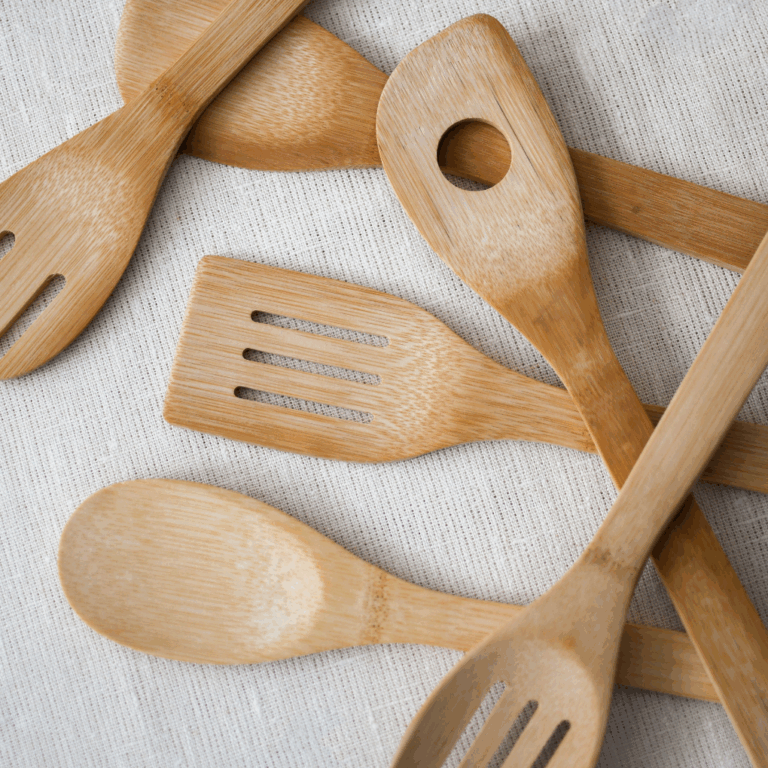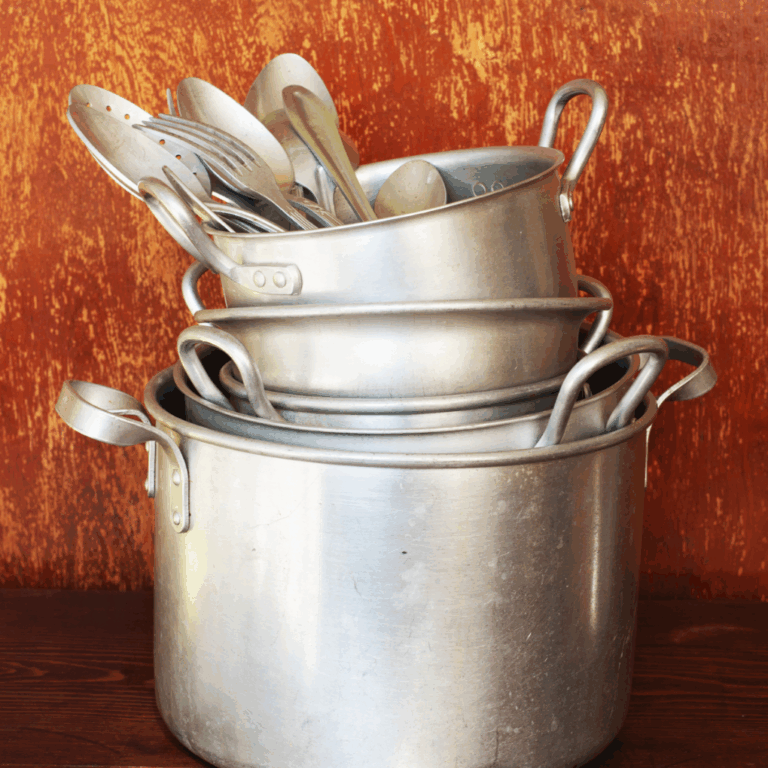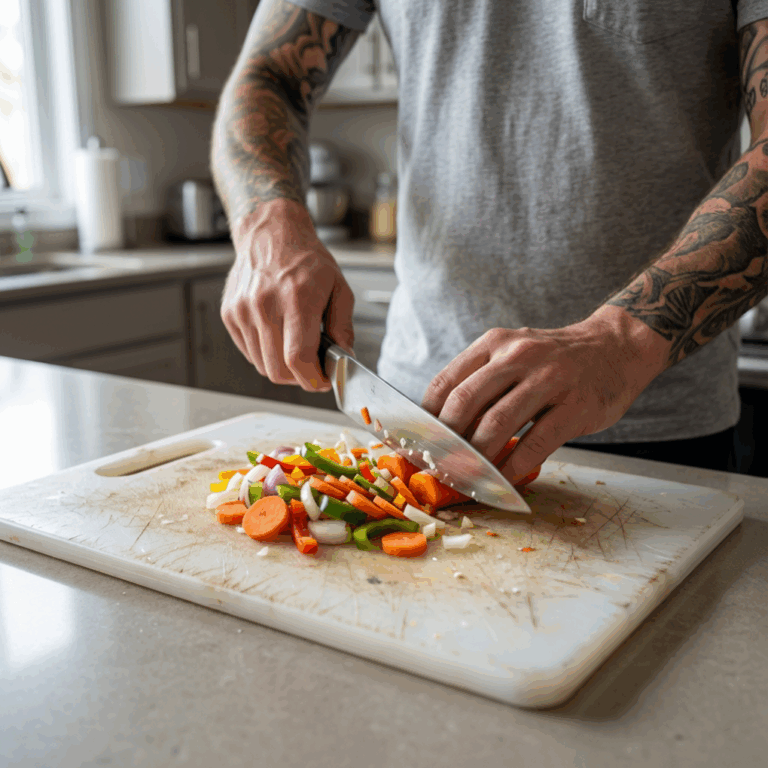
The kitchen may be the heart of the home, but it’s also where everyday frustrations show up. Leftovers lose their crunch, pans get scorched, and glasses come out of the dishwasher looking cloudy. Over time, these little problems pile up and make cooking feel less enjoyable.
The good news is that most of these challenges have quick, practical fixes. From smelly sponges to dull knives, we’ve rounded up 25 of the most common kitchen problems and the solutions that actually work. These tips will help you save time, cut stress, and even stretch the life of the tools and food you already have.
Many of these solutions also overlap with smarter, more sustainable choices. Swapping in longer-lasting tools and cutting back on disposable plastics doesn’t just save money, it makes your kitchen healthier, too.
25 Kitchen Problems and Solutions Made Simple with These Easy Hacks
The kitchen is where we cook, eat, and gather, but it also comes with plenty of little headaches. Leftovers lose their crunch, pans get scorched, and herbs wilt before you can use them. These everyday problems might seem small, but they add up to wasted time, wasted food, and extra stress.
The good news is that most of them have simple fixes you can try right away. Here are 25 common kitchen problems and the easy, sustainable solutions that actually work.
☕ Coffee Stains on Mugs
Problem: If you drink coffee or tea regularly, you know how quickly mugs start collecting stubborn brown stains. Soap and hot water rarely do the trick because tannins from the drinks bind tightly to ceramic and porcelain surfaces. Even when freshly washed, the cup looks dirty, and the stains only deepen over time. It can make your favorite morning mug feel less enjoyable and even a little embarrassing to offer to guests.
Solution: Sprinkle baking soda inside the mug, add water to make a paste, and scrub until the stains fade. For tougher marks, add vinegar, let it fizz for a few minutes, and then rinse clean. Storing baking soda in bulk and using a reusable scrub brush makes this simple hack more sustainable, too.
🧄 Cutting Board Smells (Garlic, Onion, Fish)
Problem: Chopping garlic, onions, or fish often leaves behind smells that seem impossible to wash out. Plastic cutting boards, with their knife grooves, are awful at holding odors. Before you know it, that apple you slice tastes faintly of onion, and the board itself begins to smell permanently “off.” These lingering odors aren’t just unpleasant—they can cross-contaminate flavors and waste fresh food.
Solution: Wash as usual, then sprinkle coarse salt across the board and scrub with half a lemon, squeezing gently as you go. Let it sit for a few minutes before rinsing. Wooden or bamboo boards resist odors better than plastic and avoid the microplastic shedding problem altogether.
🍳 Burnt Food Stuck in Pans
Problem: It takes only a few minutes of distraction for food to scorch and stick stubbornly to the bottom of your pan. Once that happens, no amount of soaking helps, and scrubbing with scouring pads risks scratching the surface. With nonstick pans, it’s even worse—aggressive scrubbing can strip away the coating entirely, leaving you with cookware that feels ruined.
Solution: Fill the pan with water, add a few tablespoons of baking soda, and bring it to a simmer for 5–10 minutes. The stuck food will loosen so that you can scrape it off gently. Add vinegar for extra cleaning power. Choosing stainless steel or cast iron pans avoids plastic-based coatings that break down over time and gives you cookware that can last for decades.
🍷 Cloudy Drinking Glasses
Problem: Hard water is notorious for leaving behind a cloudy, chalky film on glassware. Even when glasses are spotless, they come out of the dishwasher looking dull. Over time, your once-clear drinkware can take on a permanently hazy look that makes it appear dirty or old. This is frustrating when you’re entertaining or want to enjoy a sparkling glass of water or wine.
Solution: Soak glasses in equal parts vinegar and warm water for 15–30 minutes, then rinse and buff dry with a microfiber cloth. This not only restores their shine but also avoids the need for harsh chemicals. Sticking with glass or stainless steel cups, rather than plastic, keeps your drinkware durable and stain-free for years.
🥬 Smelly Fridge
Problem: Everyone has opened their fridge to be hit by a wave of unpleasant odors. Spoiled produce, spills, and forgotten leftovers create smells that linger, even after you clean out the obvious culprits. These odors can seep into fresh foods, especially dairy, bread, or eggs, making them taste “off.” Over time, the fridge can develop a stale odor that makes the whole kitchen less inviting.
Solution: Start by removing spoiled items and wiping down shelves with warm, soapy water. Place an open bowl of baking soda inside to absorb lingering odors. For more pungent smells, coffee grounds or activated charcoal work just as well. These natural options are reusable and avoid chemical odor absorbers packaged in plastic.
🍕 Soggy Leftovers (Pizza, Fries, Fried Foods)
Problem: Microwaving leftovers is convenient, but it often ruins the texture. Pizza crusts turn chewy, fries become limp, and fried foods lose their crunch. Instead of enjoying a second meal, you end up with food that feels disappointing and sometimes inedible, which can lead to unnecessary waste.
Solution: Reheat pizza on a skillet or directly on the oven rack at 350°F for a few minutes. Warm fries and other fried foods in the oven or an air fryer to restore crispiness. Storing leftovers in glass containers instead of plastic helps preserve their texture longer and avoids leaching microplastics into your food.
🔪 Dull Knives
Problem: A dull knife makes chopping harder, slower, and more dangerous. Because you need more force, the knife is more likely to slip and cause an injury. Dull blades also crush food instead of slicing cleanly, which can ruin the texture of fresh ingredients like herbs or tomatoes. Over time, frustration builds, and cooking becomes less enjoyable.
Solution: Hone your knife before each use with a honing steel to keep the edge aligned, and sharpen with a whetstone when needed—store knives on a magnetic strip or in a wooden block to protect the blade. High-quality steel knives last for decades and avoid the brittleness and plastic waste of cheap alternatives.
🥘 Pots Boiling Over
Problem: Boiling pasta, rice, or potatoes can turn into a mess in seconds. One moment the pot looks fine and the next starchy foam is spilling over the sides. When it dries it leaves behind a sticky residue that is tough to clean. Boil overs also waste food and can even cause your burners to smoke.
Solution: Place a wooden spoon across the top of the pot to pop bubbles before they spill over, and reduce the heat slightly after water begins boiling. Wooden spoons are sturdy, long-lasting, and avoid the warping and microplastic shedding that comes with plastic utensils.
🌿 Keeping Herbs Fresh Longer
Problem: Fresh herbs like cilantro, basil, and parsley always seem to go bad too fast. One day they look crisp and green and the next they’re slimy and unusable. It feels like such a waste of money and food, especially since the bunches you buy are usually bigger than what a single recipe needs.
Solution: Trim the ends of stems and place herbs upright in a jar with an inch of water. Loosely cover with a cloth or beeswax wrap, and change the water every few days. Storing them this way not only keeps herbs fresher longer but also eliminates the need for single-use plastic produce bags.
🧅 Onion Tears When Chopping
Problem: Cutting onions releases sulfur compounds that irritate your eyes and trigger tears. A dull knife makes this worse by crushing onion cells instead of slicing cleanly, releasing more compounds into the air. The stinging, watery eyes slow down prep and make the task frustrating.
Solution: Chill the onion in the fridge for 10–15 minutes before chopping, which slows the release of irritating compounds. Use a sharp knife for clean cuts—high-quality knives with steel handles last far longer than cheap plastic-handled ones, reducing waste over time.
🥄 Sticky Measuring Cups (Honey, Syrup, Peanut Butter)
Problem: Sticky ingredients cling to measuring cups, wasting food and making cleanup harder. Honey, syrups, and nut butters leave behind thick residues that need to be scraped out, often with mixed results. This wastes ingredients and can throw off recipe measurements.
Solution: Lightly coat the measuring cup with oil or rinse with hot water before adding sticky foods. Stainless steel tools release food more easily and avoid the staining, warping, and cracking that happen with plastic versions.
🍚 Rice Sticking to the Pot
Problem: Rice can be notoriously tricky to cook perfectly. If not rinsed or measured correctly, it sticks to the bottom of the pot and burns. Scraping off the hardened layer is frustrating and can make cleanup a chore. Overcooked or stuck rice also wastes food that could have been eaten.
Solution: Rinse rice under cold water until it runs clear, then use the correct water-to-rice ratio. Once absorbed, let rice rest covered for 10 minutes before fluffing. Stainless steel or clay pots make this process easier and last far longer than nonstick pots with plastic-based coatings.
🍞 Keeping Bread from Going Stale Too Fast
Problem: Bread never seems to last long enough. If you keep it in plastic bags it tends to mold quickly, but if you leave it out it gets dry and hard within a day. Half a loaf often goes to waste before you get a chance to eat it, which is frustrating and costly. On top of that, plastic packaging can shed microplastics and adds more trash to the pile at home.
Solution: A better way to keep bread fresh is to store it in a cloth bag, a bread box, or wrap it in a clean towel. If you need to store it longer, freeze slices in paper bags or glass containers so you can toast or reheat them as needed. These methods keep bread fresher while cutting down on single-use plastic.
🧽 Greasy Stovetop Messes
Problem: Frying or sautéing almost always leaves little grease splatters behind. At first they don’t look like much, but once the grease cools it turns into a sticky film that clings to the surface. If you wait too long it hardens and takes serious scrubbing to remove, sometimes with harsh cleaners you would rather not use. Over time the buildup makes your stove harder to clean and less enjoyable to cook on.
Solution: A simple fix is to sprinkle baking soda right onto the greasy spots, then spray with vinegar and let the fizz do the work. After a few minutes, wipe everything clean with a damp cloth. Instead of paper towels, use washable cloths so you save money and create less waste.
🍽️ Dishwasher Leaving Residue
Problem: Dishes that come out of the dishwasher cloudy or gritty can feel like they’ve never been washed at all. Hard water deposits, clogged filters, or detergent residue often cause the problem. Over time, dishes and glassware may look permanently dull, leading some people to replace them unnecessarily.
Solution: Remove and clean the dishwasher filter, then run a hot cycle with a cup of vinegar on the top rack. Sprinkle baking soda on the bottom for freshness. Using powder detergents in cardboard packaging avoids the plastic waste of single-use pods.
🍌 Preventing Fruit Flies
Problem: As soon as warm weather arrives, fruit flies seem to appear overnight. They swarm around ripe produce, multiply quickly, and are nearly impossible to shoo away. Once they invade, they can also spread to drains and trash bins.
Solution: Fill a glass jar with apple cider vinegar and a drop of dish soap, cover with a breathable lid, and poke holes. Flies are drawn in but can’t escape. Using a jar you already have is far better than buying disposable plastic traps.
🍋 Getting Rid of Cooking Odors in the House
Problem: Strong cooking odors, like fried onions, garlic, or fish, can linger for hours after a meal. The smells drift through the house, cling to fabrics, and even affect the flavor of other foods stored nearby. Chemical sprays may mask odors temporarily, but they come in disposable plastic bottles and often add harsh scents.
Solution: Simmer a pot of water with lemon slices, cinnamon sticks, or rosemary to freshen the air naturally. Opening windows or placing a bowl of vinegar on the counter overnight helps absorb odors. These natural methods leave your home smelling fresh without adding waste.
🥫 Stopping Food Containers from Staining
Problem: Foods like tomato sauce, curry, and anything oily have a way of leaving bright stains behind in plastic containers. Even after a good wash the red or orange color lingers, and often the smell does too. Over time the containers start to look permanently dirty, which is frustrating when you know they are actually clean. Many people give up and toss them out, replacing containers that could have lasted longer.
Solution: Switch to glass or stainless steel containers, which don’t stain, absorb odors, or degrade over time. If you do use plastic, coat the inside with oil before storing to make cleanup easier—but glass is always the most durable and waste-free option.
❄️ Freezer Burn on Frozen Food
Problem: Freezer burn happens when food isn’t sealed correctly and is exposed to cold air. It develops dry patches and ice crystals that ruin taste and texture, even though the food is technically safe to eat. This often leads to wasted meals that get thrown out.
Solution: Let food cool fully before freezing, then store in airtight glass containers or reusable silicone bags. Label and date items so older food gets used first. These reusable solutions cut down on freezer waste and eliminate disposable bags.
🧄 Peeling Garlic Quickly
Problem: Garlic adds flavor to countless recipes, but peeling it is tedious. Skins cling stubbornly, and peeling several cloves by hand slows down meal prep. Specialized plastic gadgets exist, but they clutter drawers and often break.
Solution: For a single clove, place it under the flat side of a knife and press down firmly to loosen the skin. For larger amounts, shake cloves vigorously in a glass jar for 20–30 seconds until skins separate. No need for extra gadgets—and glass jars are infinitely reusable.
🧼 Keeping Sponges from Smelling
Problem: Kitchen sponges absorb food and water, making them a breeding ground for bacteria. Within days, they develop a sour smell that spreads to dishes and counters. Throwing them out frequently creates both expense and plastic waste.
Solution: Rinse sponges thoroughly, squeeze out excess water, and sanitize by microwaving damp sponges for one minute or boiling briefly. Better yet, replace synthetic sponges with compostable scrubbers or washable cloths that last longer and avoid plastic fibers.
🥗 Preventing Salad from Wilting
Problem: Bagged salads and leafy greens spoil quickly, often going slimy before you can finish them. Plastic bags trap too much moisture, speeding up spoilage, while uncovered greens dry out and lose freshness. This leads to wasted food and money.
Solution: Wash and dry greens thoroughly, then store them in a glass or stainless steel container lined with a cloth or towel to absorb moisture. This keeps greens crisp for days longer without relying on disposable plastic packaging.
🧂 What to Do When You Oversalt Food
Problem: A heavy hand with the salt shaker can ruin a dish in an instant. Soups, sauces, and stews that taste overwhelmingly salty are disappointing, and starting over wastes both time and ingredients.
Solution: Dilute with more liquid, add a peeled potato or rice to absorb salt (removing it before serving), or balance flavors with lemon juice or vinegar. Compost the potato or rice afterward so nothing goes to waste.
🍲 How to Reheat Leftovers Without Drying Them Out
Problem: Leftovers often lose their appeal once reheated. Chicken becomes rubbery, rice turns stiff, and casseroles dry out around the edges. Microwaves make this worse by heating unevenly, but ovens can overcook, too.
Solution: Sprinkle rice or pasta with water or broth, cover, and reheat gently. Pizza does best in a skillet or oven, and fried foods revive in an air fryer. Use glass containers for reheating—they retain moisture better than plastic and avoid microplastic leaching.
🧵 Keeping Kitchen Towels Fresh (Not Musty)
Problem: Kitchen towels get damp quickly and are often used for everything from drying dishes to wiping counters. If left wet, they develop a musty smell that no amount of detergent seems to remove. Microfiber towels also shed plastic fibers into laundry water.
Solution: Wash towels frequently, add vinegar to the wash cycle to break down odors, and dry them thoroughly before folding. Choose organic cotton or linen towels instead of microfiber to avoid microplastic pollution in your washing water.
Final Thoughts on Kitchen Problems and Solutions
Kitchen problems don’t have to slow you down. With a few simple tricks, you can keep your space cleaner, your food fresher, and your tools working like new. From preventing soggy leftovers to maintaining fresh herbs, these everyday solutions make cooking and cleanup easier.
Want to take your kitchen skills even further? Try exploring zero-waste food storage, natural cleaning methods, and ways to keep microplastics out of your home. Small changes in the kitchen not only save you time and frustration—they also help create a healthier home and planet.
